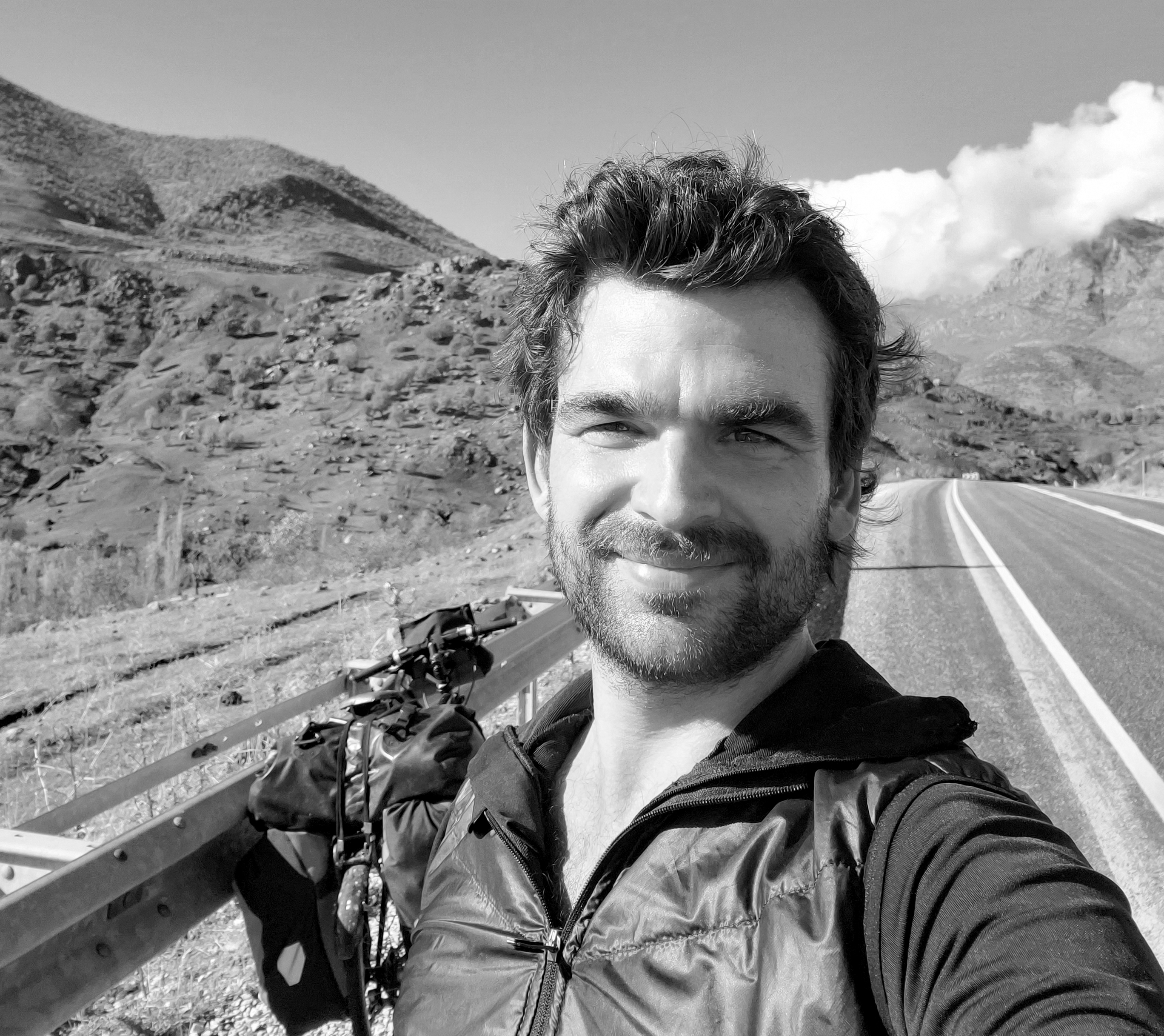Swapping power-fixation for panniers might be easier and more satisfying than you think
Tempted to embark on a long-distance bike adventure? Let former round-the-world record holder and author Julian Sayarer inspire you to strike out and hit the road
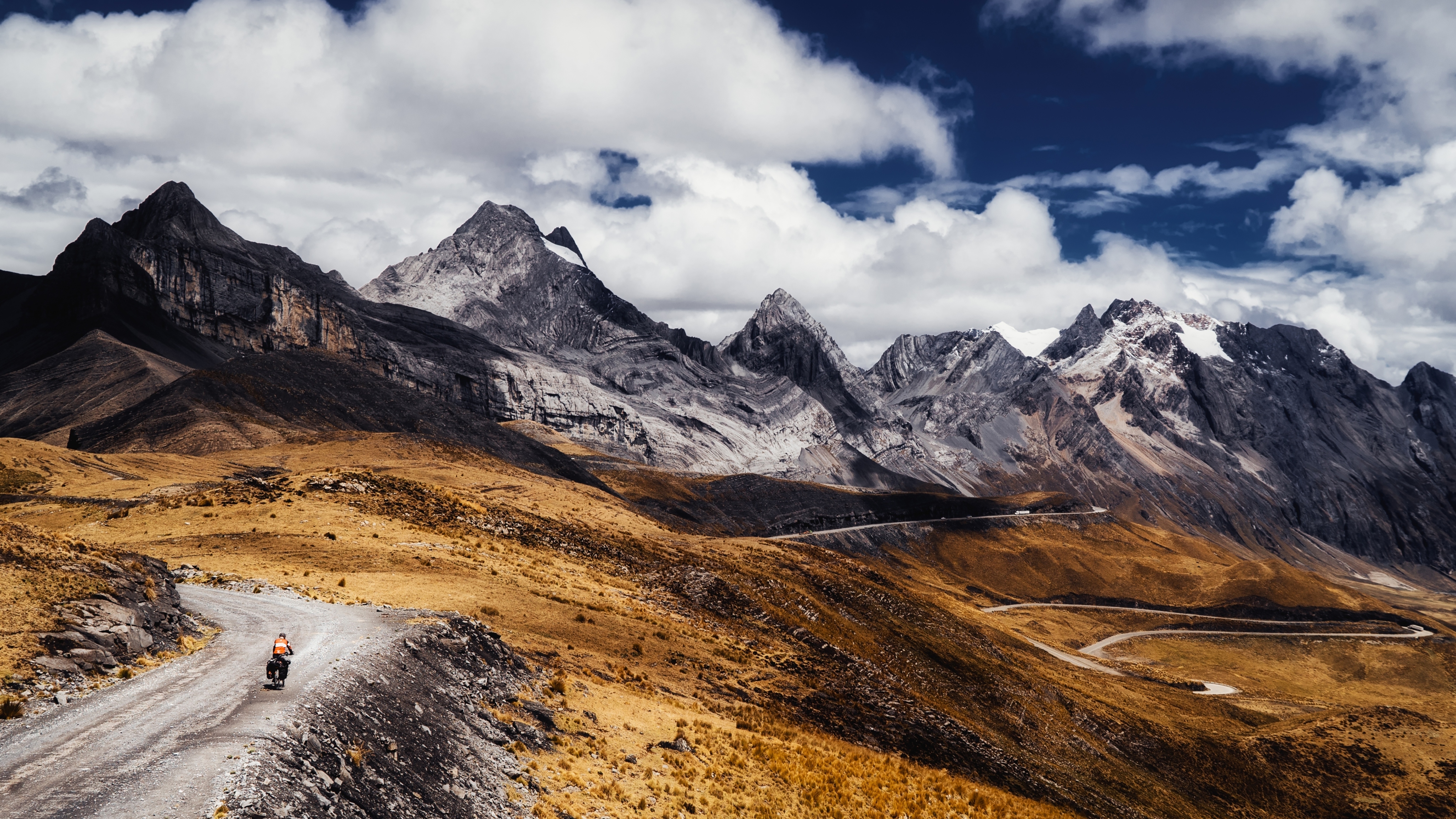
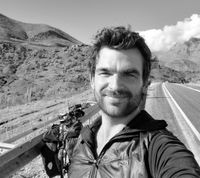
You can cover a lot of ground on a bike, but too often you end up encircling the same small patch. On your regular ride you reach the point of knowing every slight alteration in road surface and where it happens; every gradient uptick; and precisely how long it takes, at what average speed, power and heart rate. You’ve been doing thousands of miles but going nowhere. It’s time to shake things up. String those miles together differently, you realise, and you could actually go somewhere and have an amazing experience.
That’s how it started for me, before building to a record-breaking round-the-world ride in 2009. Since then, I’ve regularly ridden the 3,000km between London and Istanbul (half of my family is Turkish), and I’ve spent prolonged periods touring Palestine and North Africa. Right now I’m in Latin America completing a 15,000km ride that will form the basis of my next book. Since shifting from ‘normal’ cycling to long-distance touring (or, bikepacking, if you like), I’ve never looked back – and in this feature, I want to explain how swapping power-fixation for panniers might be easier, and more satisfying, than you think.
There's only one way to tour - your own
The good news is that it doesn’t have to be all or nothing. You needn’t shift straight from the club ride to the Central Asian steppe, as cycle touring encourages an adaptive approach different for all of us. Just as the road often throws up all manner of variety, being ready for anything is part of figuring out what works for you.
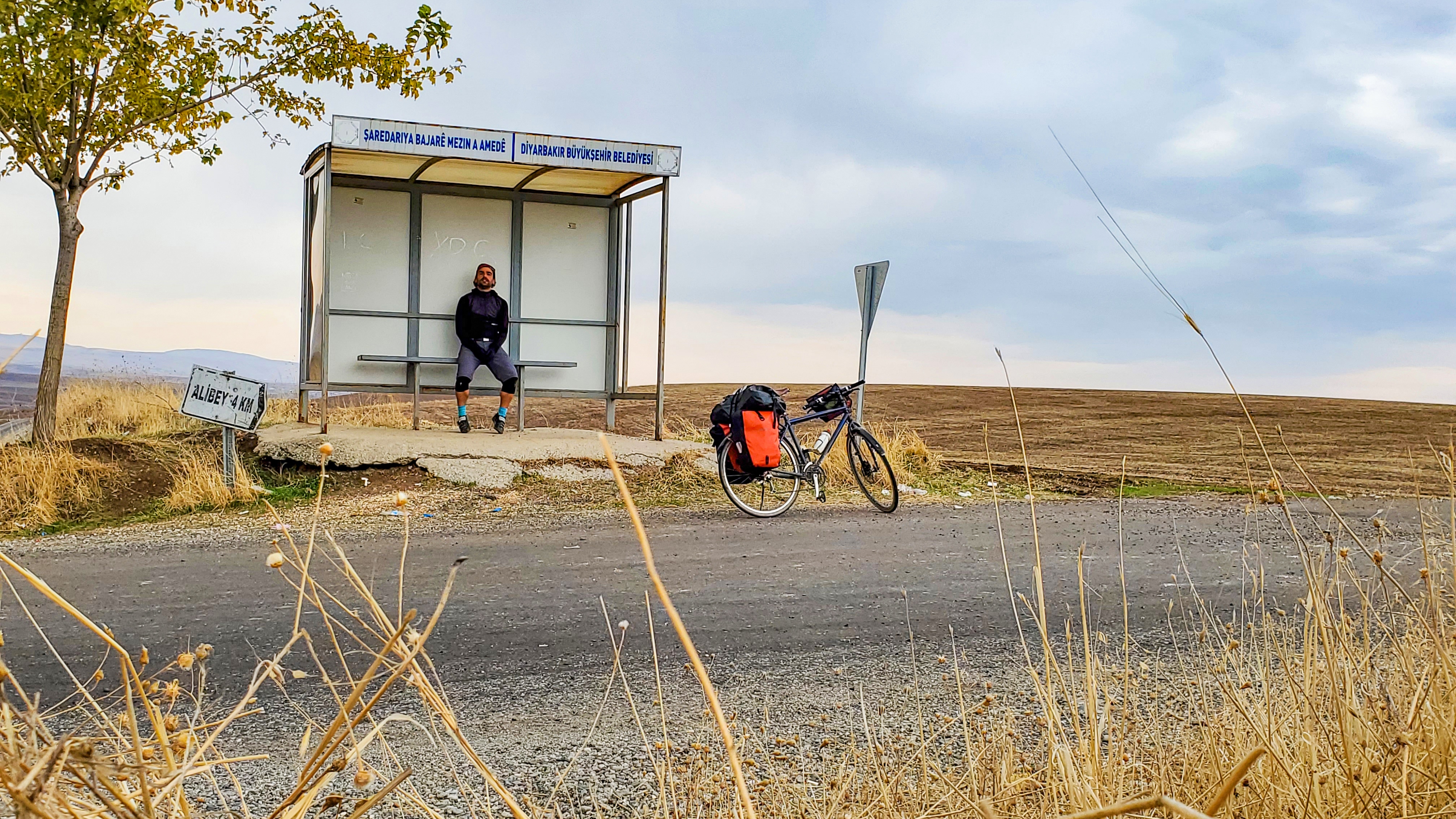
One of my first mini-tours involved jumping on the ferry from the UK's Newhaven to France's Dieppe with my fixed-gear bike one winter’s night, disembarking at 5am, then blasting out the 110 miles to Paris. I did similar in a mixed group of friends, male and female, but across a Normandy weekend with frequent stops for cheese, wine and farmhouse cider. I’ve cycled to Istanbul via every conceivable route through Europe, including riding to Tuscany, jumping on a boat to Patras, Greece, then continuing to Turkey via warmer climes. It’s likewise possible to make an EU cycling tour through Spain or Italy instantly more interesting by, instead of stopping at the edge of the bloc, adding a ferry to Tangiers, Morocco, or Tunis, Tunisia.
Make a pilgrimage to a precious place
The saying ‘it’s about the journey, not the destination’ may be true, but sometimes a destination does help – choosing one can be part of the fun and the motivation. It’s good to arrive somewhere you want to be, perhaps somewhere you’ve always wanted to isit. The thought of arriving can get you through tough moments of wet feet, hunger, and frankly unreasonable headwinds. Choose somewhere special for you.
If you want simply to jump on a ferry with your bike, Paris, Rotterdam or Amsterdam are great options. As a touring cyclist, ferries are your friend, and there are few better trips than through the rugged wilds of Wales, followed by a boat to Ireland to ride the Wild Atlantic Way, and back via Dublin. Brothers on Bikes, a Muslim-majority UK cycling club I’ve worked with, cycled to Italy and then – via boats to Egypt and across the Red Sea – rode to Saudi Arabia and Mecca for the Hajj. After I cycled around the world and became briefly well-known in endurance cycling circles, many cyclists reached out to me describing how they had taken a sabbatical to stave off corporate-world burnout with a long-distance ride. As humans we are emotional beings not cut out for endless stressful hours at a desk, which is one of many good reasons why the pilgrimage – religious or secular – endures as a ritual.
Choose your riding partners carefully
As important as where you ride is who you ride with. My first long-distance trip – Brighton, UK, to Lisbon, Portugal – as a teenager was with a friend who was a far faster cyclist than me. He was much less interested in sitting in French cafes, and suffice to say, it was not a match made in heaven. The next year, I rode to Istanbul with another friend and we had the time of our lives. Riding to Istanbul alone for the first time, the following year, I found a different kind of bliss and tranquillity; my own pace, my own stops, my own thoughts. Similarly, for couples setting out on world trips together, the experience can make or break a relationship, so don’t be daunted but be aware – a long ride is a big undertaking, and compatibility will almost certainly be tested.
The latest race content, interviews, features, reviews and expert buying guides, direct to your inbox!
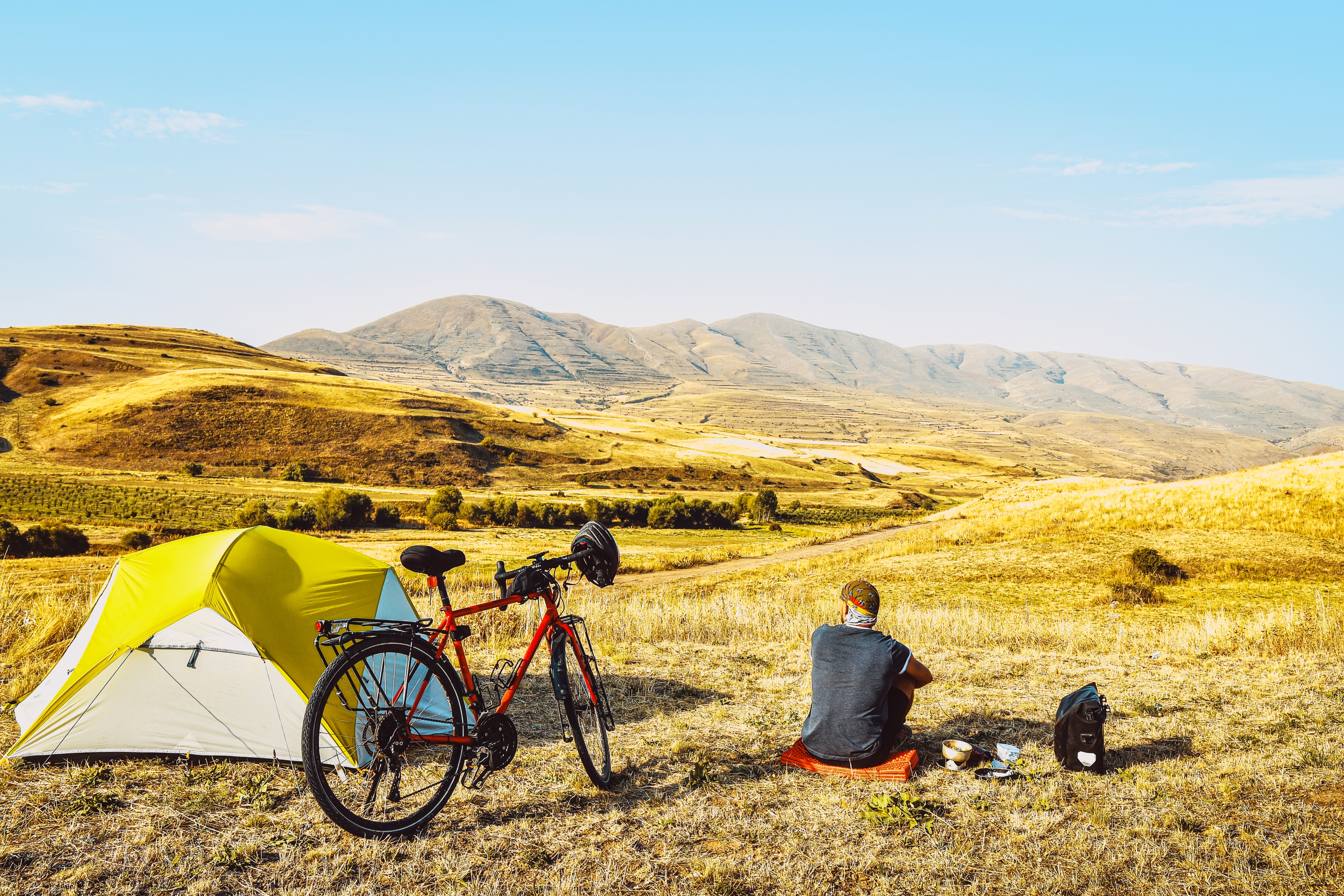
With a bike and a tent the whole world is your hotel
As a travel writer, writing each day in my notepad, whether for a book project or just for myself, always provides a companionship of sorts – and you don’t need to be a professional writer to justify this habit. The road provides companions too – the world has eight billion people waiting to meet you. I met my good friend Clement at a junction one evening on the Kazakh steppe; I was cycling to Shanghai, he to New Delhi. We’ve remained in touch.
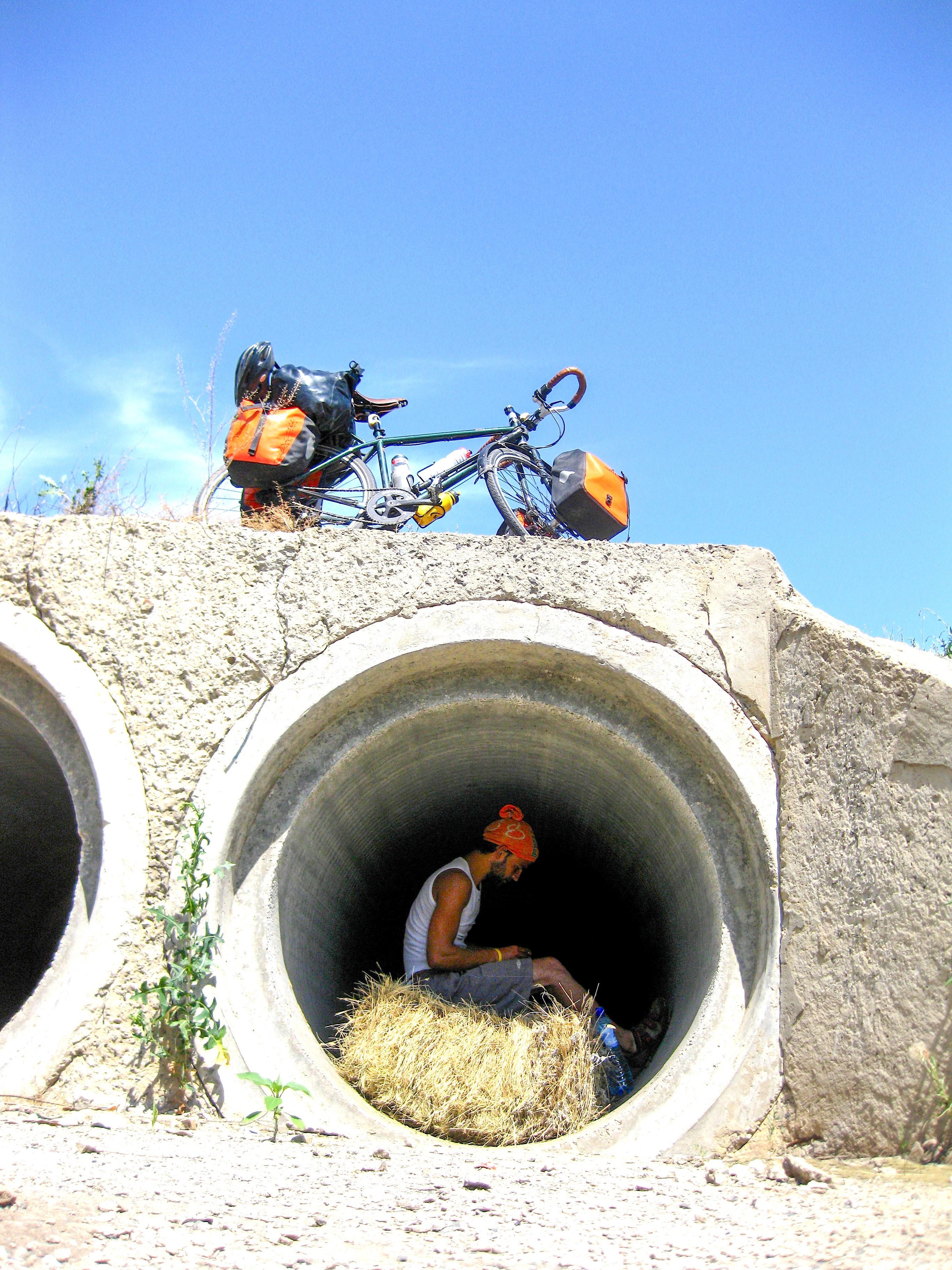
From Russia, with a tunnel of love
Nothing to fear, but fear itself
As with many dreams and ambitions, it’s often the fear that prevents us from setting out. Fear is not necessarily misplaced, of course, because bad things do happen. But I can offer this reassurance: no bad thing has ever happened to me in hundreds of thousands of kilometres of touring. Sometimes we find it hard to keep our fears in proportion with the risks.
Everyone fears different things. In my experience, men are more likely to fear violent crime or theft, while women understandably fear unwanted attention and sexual assault. Thankfully, I have never been the victim of a crime while travelling by bicycle, and nor have the many women I know who have cycled long-distance across China, Korea and Latin America.
French farmers who found me and friends sleeping in their field one morning made no sterner request than that we take our empty wine bottles away with us. Of the countless dogs that have chased me, the only truly scary one was in the US and had been trained to bite (go figure!). The world’s biggest killer is the motor car, and an aggressively driven Range Rover in Surrey is more frightening than almost anything I’ve encountered in wild, unpredictable places overseas.
Go your own way
All of my ‘rules’ so far seem to imply that there aren’t really any rules. That sounds about right. Any rules you do settle on should be broken liberally according to mood and moment. If you need to catch a train or a bus because you’ve fallen behind schedule, don’t hesitate to do so. For far too long, I considered this an unacceptable violation of my touring principles.
Likewise, if you’re extra tired, unclean, bored, or feel unsafe, book into a hotel. Stay in hotels for the whole trip if you want, or start that way and save the remote camping for the wilder places. As with physical training for a ride, it often helps just to build up from a more manageable start.
OK, this is one touring rule that does hold sway: summer is better than winter, for the weather but even more so for the longer days. Riding in daylight is safer and you’re less likely to get lost.
No money, no problem
Put aside the idea that cycle touring has to be expensive. It can be a really cheap way to travel, not least because avoiding large, popular cities is often conducive to calmer days with less traffic. Camping saves on budget, too, but if you want to mix that up with some comfier indoor accommodation, bear in mind that costs vary wildly from place to place. Many beautiful places in the Balkans have excellent value hotels and B&Bs, at a fraction of the cost of their UK equivalent.
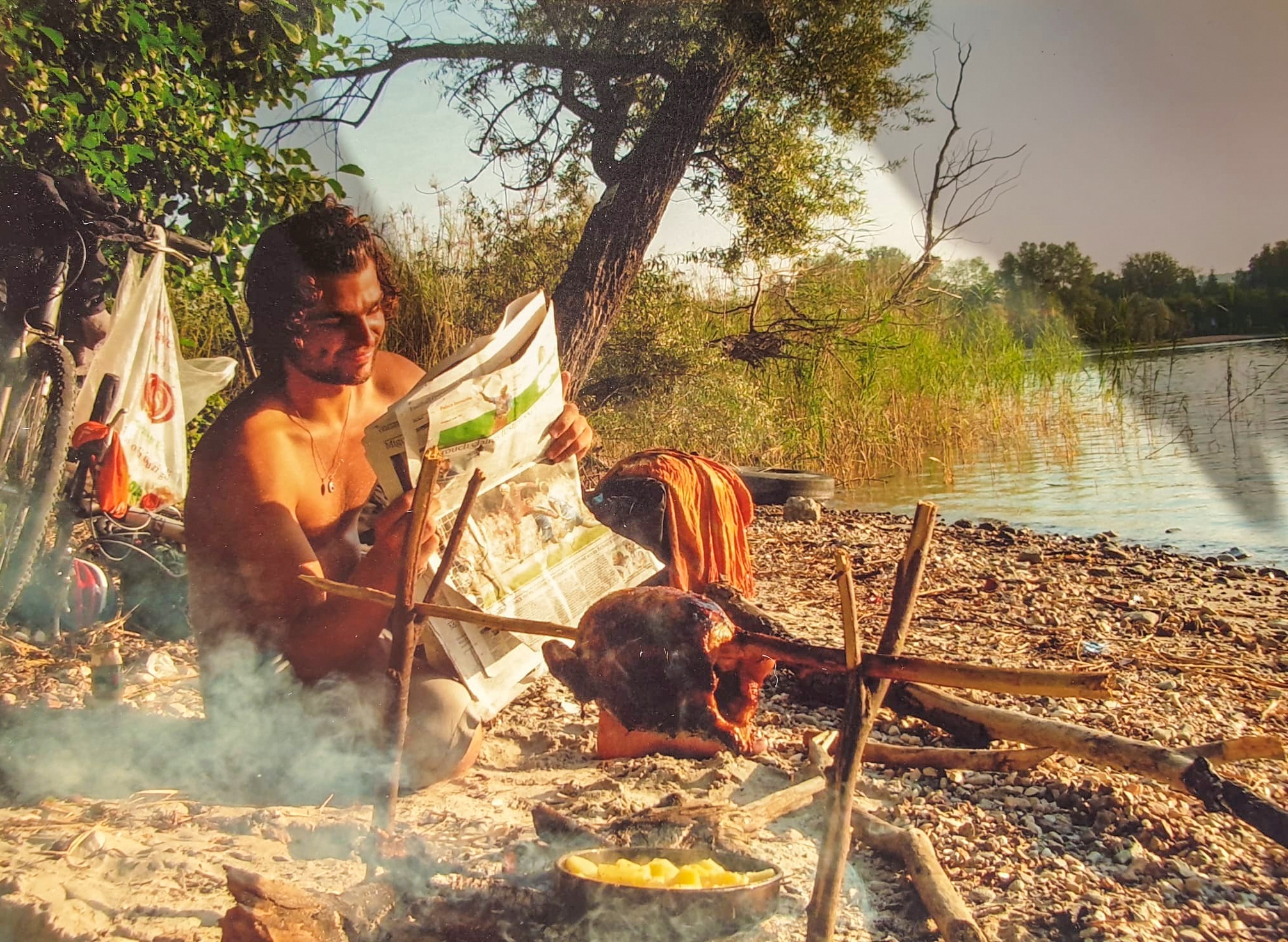
Improvised al fresco in Lago Maggiore, Italy
Cooking on a camp fire or stove is one of the best ways to end a day in the saddle. A few vegetables and sausages roasted in foil on a fire, then scooped into a baguette, washed down with a bottle of wine, in my experience beats any Michelin-starred restaurant. Commercial travel wants to prise money from you at every opportunity, but one of the core lessons you learn out on the road, even on very short trips, is that these pricy extras add little to the overall experience. It’s the free (or very cheap) things that often form the most precious memories.
Treasure the connections
The world and its people are amazing and beautiful, and nowhere have I learned this as powerfully as in the saddle. Countless times when pulling up at a roadside as a stranger in a new place, people have welcomed me lik a friend. The bicycle is unthreatening, and generally people respond warmly towards it. Contrasting the warm reaction to cyclists in poorer nations compared to the too often frosty response in the UK can make me sad, but it also gives me hope.
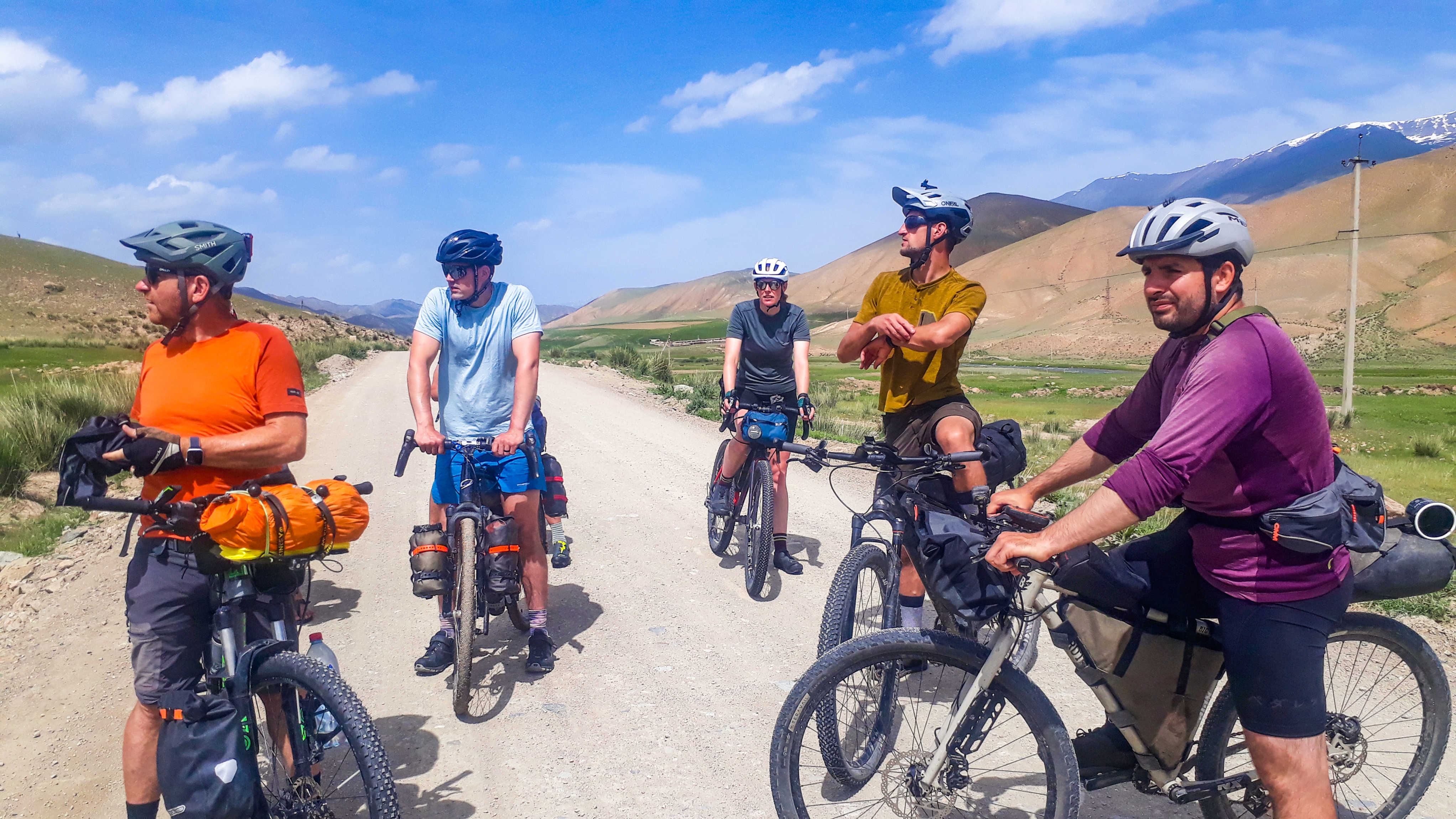
With the Pannier CC crew in Kyrgyzstan
On the road, it’s the little things that stay with you. I’ll always remembe being woken, while camping in the grounds of a mosque in Turkey, by four young boys from the local cycling club, plucking a pomegranate from a tree and handing it to me for my breakfast. Riding in Palestine, after endless delays at Israeli military barricades, I stopped for supplies at a store. With a tap of the chest, the Palestinian shopkeeper made it clear that the dates and apples I had selected were his gift to me. So many such moments stay with me, from sleeping under a roadside pagoda in Thailand or behind a roadside boulder in Mexico; to watching shooting stars from the Kazakh steppe or on the Oregon coast. Still, nothing diminishes the welcome sight of the cidery on my regular road towards Rouen, familiar though it is.
Discover who you really are
It may be a cliché to say that we regret the things we don’t do more than those we do, but some clichés hold true. As much as I’m eager to assert that there is no right or wrong way, only your own way, that’s not entirely true either. The world sometimes dictates the way, for better or worse. Occasionally fate offers you a gift – I remember stumbling upon a hot spring spa just as I cycled out of a Chinese coal mining valley – and surpasses anything you could have dreamt up. Once you’re on the road, confidence is self-fulfilling; with each test, you cope and carry on. You have more skills, resilience, durability and – forgive the tech reference – bandwidth than you realise. The open road reconnects you with your full potential.
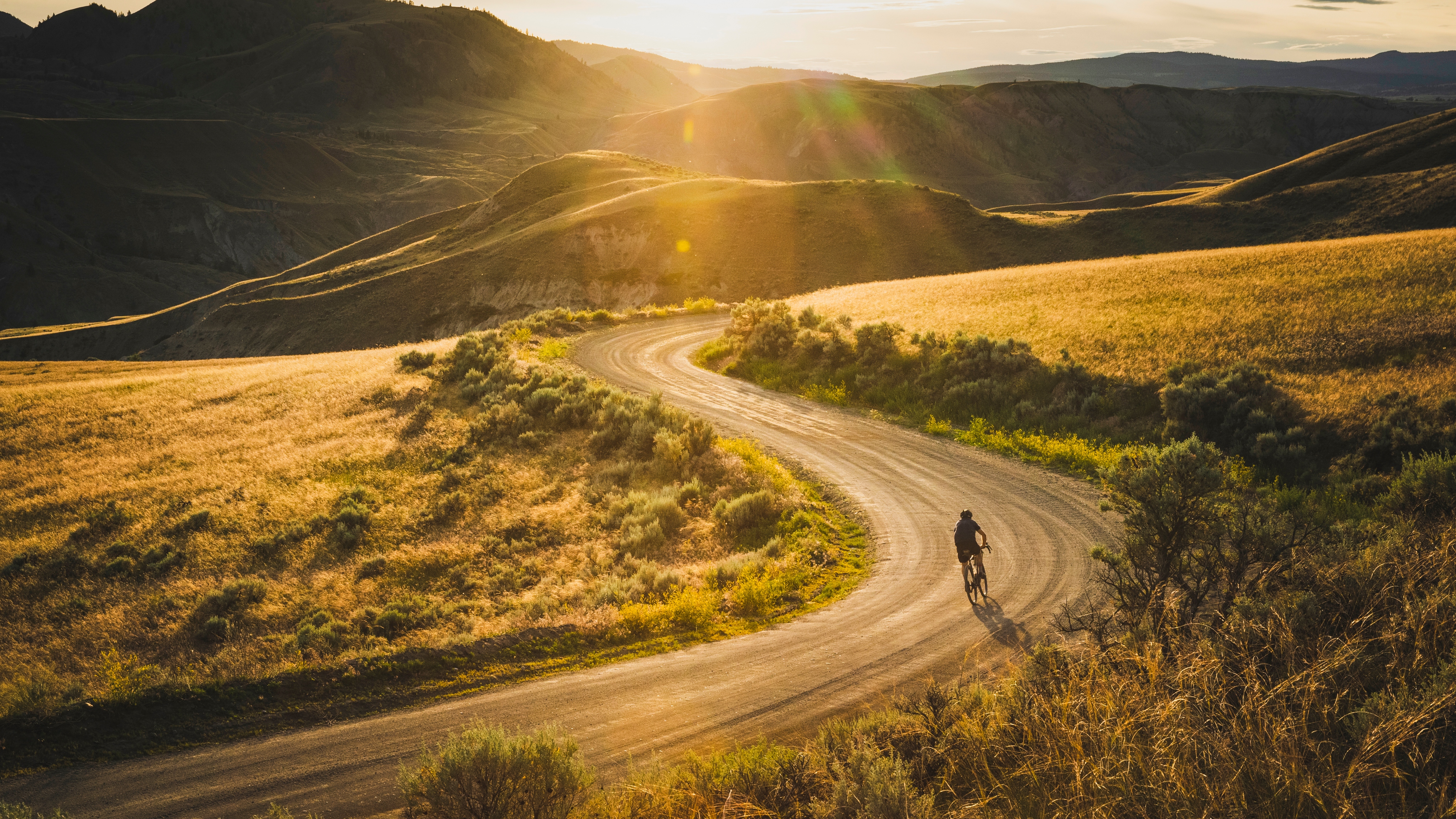
You don’t need to be minted to make golden memories
Often it is those previously unused or dormant parts of ourselves that come to define who we are. The bicycle, the world and the open road combine to draw them out of us. The idea of head versus heart, or ‘out there’ versus ‘in here’, are false divides. Every beginning and end is simply a point on this same earth, connected by a road. Everything in between awaits us; all we need is a bicycle, some strength in our legs, and the courage to set out.
Julian Sayarer is the author of seven books including his latest Türkiye. He is currently touring Peru
